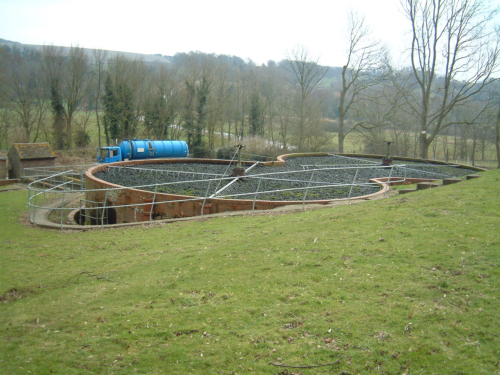Case Study
Filter Bed Rotation Monitor
Not disclosed
Rotating filter beds are commonly used within small sewage works. They are water-powered so have no need for a mains electricity supply. They typically filter waste water before it is discharged into a nearby stream.

If the arm stops rotating the filter action diminishes so the discharged water becomes contaminated. EU legislation therefore dictates that they should be monitored to generate a remote alarm if they stop. This requirement is complicated by the fact they the rotation speed is determined by the flow of water, so is not constant. Furthermore, overnight the flow may drop to the point where they stop rotating, which is not a problem, providing they restart when the flow resumes.
A large part of the cost of installing monitoring equipment is the time taken to fit sensors, cabling and telemetry. We address this by offering a radio unit with a magnetic sensor that can be battery-powered or solar-powered. Installation therefore only requires fitting the unit to the arm.
The unit samples the magnetic sensor at a rate appropriate to the rotation speed and records the time per revolution and the total number of revolutions. It can process this information and send an alarm if the arm stops rotating. The alarm can be passed to an adjacent base-station that can accumulate the data from a number of filter beds and relay the combined data to a third party telemetry system.